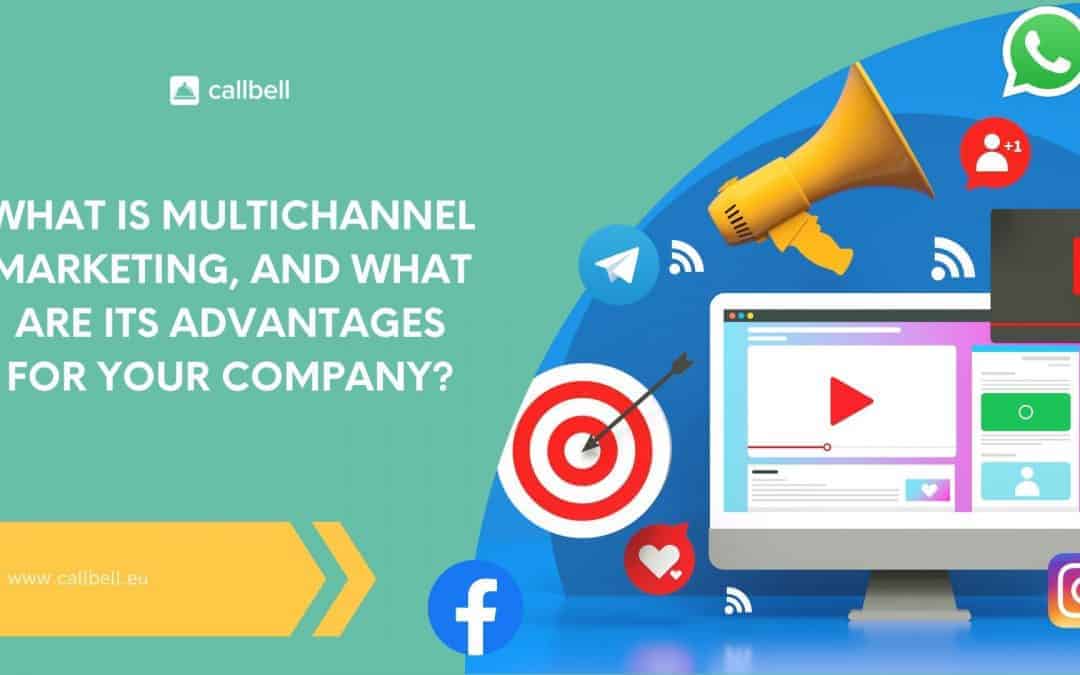Multichannel marketing includes several channels through which the company can communicate with its customers. These channels can be online or offline, or social networks, emails, calls or SMS. In other words, a campaign that is carried out by implementing multichannel marketing can be carried out simultaneously with different channels such as:
a) Social network.
b) Email.
c) Websites.
d) Offline channels
e) Digital advertising
The idea of this marketing is that the message reaches its destination regardless of the type of channel that is used to communicate with the prospect. In order to achieve this purpose, it is extremely important to know the structure and way of communicating in each of these channels so that the aesthetics and quality of the information are maintained regardless of where it is transmitted. If you’re communicating via email, it may require a strong email verifier to further ensure the effectiveness of your marketing campaigns.
Typically, brands looking to run multichannel campaigns make the necessary changes for each channel.

One of the big differences is that in Multichannel Marketing the company communicates through several service channels and in the most disparate ways. On the contrary, in the omnichannel one, although multiple communication channels are used, these are connected to each other and the person can interact in the same way in each of these. While in an Omnichannel strategy, although multiple channels are also used to convey a message, these in turn are linked together, also allowing potential customers the particularity of interacting with them on any of the platforms used.
While it is true that omnichannel marketing is very comprehensive and convenient for interacting with the public, it requires a higher level of complexity and investment on the part of companies. Since, they have to invest in tools that allow them to integrate all channels and from there serve their users. In addition, a team and the necessary infrastructure from the company are also needed to support such a system.
This is how we define multichannel marketing as the method or methodology used by companies looking to break the mould, allowing them to serve individually from various channels always with extreme attention, follow-up and personalization. However, capable of making it easier for companies to have more control over the coverage they have with customers.
People will recognize your brand
With a good multichannel marketing strategy, you will be able to always stay in the mind of your consumers. This is because you can show yourself on various communication channels and, by focusing your marketing strategy on this, your customers will always have information about you. Therefore, as a result, people and potential customers will always remember your brand.
Increased market position
Traditional marketing has several limitations such as market coverage. This means that many times it does not reach all the audience it should. With multichannel marketing it is different, by showing yourself in different channels of attention, you will be able to cover that market sector that you did not reach before and consequently your position in the market will increase.
New ways of selling and interacting
Multichannel marketing is very interesting, since it allows you to open communication channels from where and when you want. In addition to increasing the recognition of our brand and market dominance, new sales channel opportunities open up. This means that your opportunities to sell your product or service increase, being able to use any channel you want, such as WhatsApp, Facebook, Instagram, Telegram, Callbell or other.

In addition, Callbell allows you to manage your sales and support in one place and in a multi-channel way. The platform was designed to sell more and offer maximum customer support. Therefore, you will find many tools within the chat module that will facilitate your daily management. Automatic chat routing, team, business metrics or internal notes make Callbell an excellent tool to sell, offer customer support and manage all the messages you receive from WhatsApp and other social networks in one place.
If you want to learn more about Callbell and how it can help you sell with its multi-channel chat, click here.
What are the differences between Multichannel and Omnichannel Marketing?
One of the big differences is that in Multichannel Marketing the company communicates through several service channels and in the most disparate ways. On the contrary, in the omnichannel one, although multiple communication channels are used, these are connected to each other and the person can interact in the same way in each of these. While in an Omnichannel strategy, although multiple channels are also used to convey a message, these in turn are linked together, also allowing potential customers the particularity of interacting with them on any of the platforms used.
What is multichannel marketing?
- Social network.
- Email.
- Websites.
- Offline channels.
- Digital advertising
The idea of this marketing is that the message reaches its destination regardless of the type of channel that is used to communicate with the prospect. In order to achieve this purpose, it is extremely important to know the structure and way of communicating in each of these channels so that the aesthetics and quality of the information are maintained regardless of where it is transmitted.
About the author: Hello! I am Alan and I am the marketing manager at Callbell, the first communication platform designed to help sales and support teams to collaborate and communicate with customers through direct messaging applications such as WhatsApp, Messenger, Telegram and Instagram Direct




